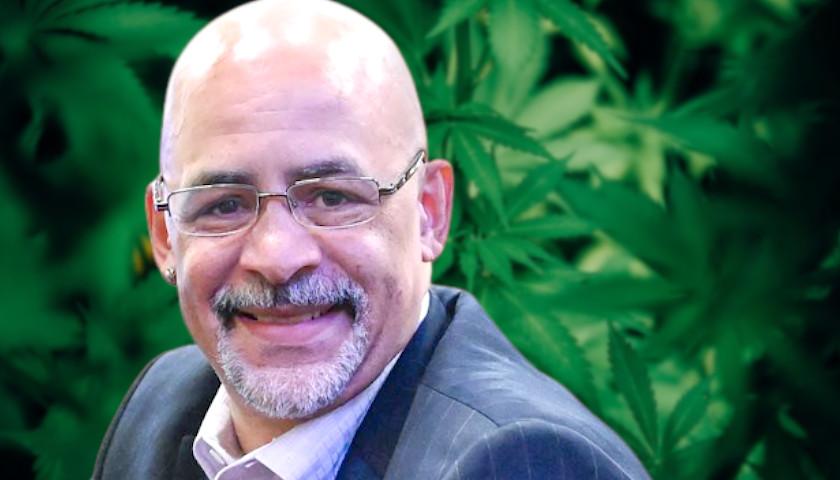Pennsylvania’s House Judiciary Committee on Wednesday passed a resolution calling on the federal government to remove marijuana from the top section of its controlled-substances list.
House Resolution 420 — an allusion to 4/20, a day of celebration for many pot smokers — the measure sponsored by State Representative Chris Rabb (D-Philadelphia) asks federal officials to move cannabinoid products off of Schedule I. The topmost of five illicit drug categories, Schedule I includes substances the U.S. Drug Enforcement Administration (DEA) characterizes as having “no currently accepted medical use and a high potential for abuse.”
Approved 12-9, with all Democrats supportive and all Republicans opposed, the resolution objects to marijuana occupying the same official tier as “dangerous and highly addictive drugs such as heroin.” The measure further notes the DEA treats pot as more pernicious than Schedule II substances like cocaine and fentanyl.
Pennsylvania is one of 16 states that permit medical but not recreational intake of marijuana. The DEA describes the plant-based drug as “mind-altering[,] psychoactive [and causing] difficulty in thinking and problem-solving, hallucinations, impaired judgment, reduced coordination [and] distorted perception” among other conditions. Physical impairments such as increased heart rate and respiratory problems can result from the often-smoked product, though the agency notes, “No deaths from overdose of marijuana have been reported.”
Twenty-two others, plus the District of Columbia, have laws allowing adult non-medical use. All these states’ marijuana statutes contravene federal law, which forbids the drug’s usage as an indulgence or a health-condition treatment.
Rabb’s resolution now awaits consideration by the full Pennsylvania State House of Representatives. If approved, copies will be sent to President Joe Biden, presiding officers of the U.S. House of Representatives and U.S. Senate, the federal attorney general, DEA Administrator Anne Millgram, Health and Human Services Secretary Xavier Becerra, and all federal lawmakers from Pennsylvania.
“I though it important for us to be on the record, to provide some context for the work we do and the things we have to work around because federal and state [policy] are not aligned,” Rabb (pictured above) told committee colleagues. “Nothing can be more emblematic of that than the fact that the federal government views cannabis on the same level as meth[amphetamine], heroin, cocaine.”
The representative lamented that over 800,000 Pennsylvania residents have medical marijuana prescriptions for various ailments but run afoul of U.S. law every time they use those scripts. He added that he is among those users; he takes tinctures as a sleep aid.
One of the most doctrinaire leftists in the Pennsylvania legislature, Rabb, however, mentioned that a change in federal policy would benefit many gun owners since federal prohibition forbids users from possessing firearms or buying new ones.
State Representative Paul Schemel (R-Waynesboro) spoke against the resolution, explaining that while he has supported some relaxation of state marijuana law, he would want more specific language regarding whether weed should remain utterly illegal or leave Schedule I. He also expressed reluctance to effectively ask federal officials to consider legalizing recreational marijuana while the commonwealth still forbids it.
“Be aware I share a good deal of [Rabb’s] concern with regard to incarceration of individuals who are found in possession of marijuana,” Schemel said. “I was a supporter of legalization of medical marijuana several years ago. The challenge with this particular resolution is it asks Congress to do something that I believe would be in conflict with state laws here in Pennsylvania.”
The Republican clarified he would probably support a resolution that asked Congress to place cannabis onto Schedule II, III or IV, preserving the DEA’s ability to generally restrict its use.
“This proposal simply seeks to legitimize cannabis as anything, not specifically a medical product, which I think is harmful because cannabis is a harmful product used in many applications such as recreational applications,” he said.
Rabb responded by acknowledging that his legislation is agnostic about whether or how marijuana should be rescheduled.
“That is a separate process that we have to defer to the feds on,” he said. “This is merely saying where it should not be. I don’t think we should be in the business of telling Congress what to do, specifically as it relates to addressing this issue. [It’s] just that this matter is urgent and the misalignment is clear.”
– – –
Bradley Vasoli is managing editor of The Pennsylvania Daily Star. Follow Brad on Twitter at @BVasoli. Email tips to [email protected].
Photo “Chris Rabb” by Chris Rabb.





